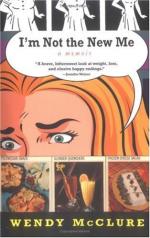“Mr. Lincoln then went into a terse though rapid review of the origin of the Mexican War, and the connection of the administration and General Taylor with it, from which he deduced a strong appeal to the Whigs present to do their duty in the support of General Taylor, and closed with the warmest aspirations for and confidence in a deserved success.
“At the close of this truly masterly and convincing speech, the audience gave three enthusiastic cheers for Illinois, and three more for the eloquent Whig member from that State.”
After the speech at Worcester, Lincoln spoke at Dorchester, Dedham, Roxbury, and Chelsea, and on September 22d, in Tremont Temple, Boston,[14] following a splendid oration by Governor Seward. His speech on this occasion was not reported, though the Boston papers united in calling it “powerful and convincing.” His success at Worcester and Boston was such that invitations came from all over New England asking him to speak, and “The Atlas,” to which many of these requests were sent, was obliged finally to print the following note:
[Footnote 14: At this meeting the secretary was Ezra Lincoln, also a descendant of Samuel Lincoln of Hingham.]
HON. ABRAHAM LINCOLN.
In answer to the many applications which we daily receive from different parts of the State for this gentleman to speak, we have to say that he left Boston on Saturday morning on his way home to Illinois.
But Lincoln won something in New England of vastly deeper importance than a reputation for making popular campaign speeches. He for the first time caught a glimpse of the utter irreconcilableness of the Northern conviction that slavery was evil and unendurable, and the Southern claim that it was divine and necessary; and he began here to realize that something must be done. Listening to Seward’s speech in Tremont Temple, he seems to have had a sudden insight into the truth, a quick illumination; and that night, as the two men sat talking, he said gravely to the great anti-slavery advocate:
“Governor Seward, I have been thinking about what you said in your speech. I reckon you are right. We have got to deal with this slavery question, and got to give much more attention to it hereafter than we have been doing.”
[BEGUN IN THE APRIL NUMBER.]
[Illustration: “PHROSO”]
A TALE OF BRAVE DEEDS AND PERILOUS VENTURES
BY ANTHONY HOPE,
Author of “The Prisoner of Zenda,” “The Dolly Dialogues,” etc.




